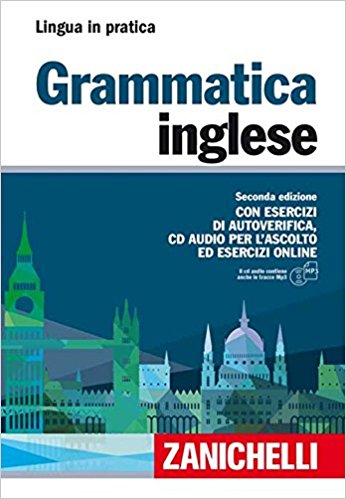C’è una grande differenza tra i verbi modali (o servili) e i verbi ausiliari. Normalmente per costruire le forme negative, interrogative e interrogativo-negative dei verbi devi usare i verbi ausiliari (come per esempio: do, did, have, ecc.). I verbi modali (o servili) vengono invece usati se vogliamo modificare il significato di un verbo.
CAN è il primo verbo modale che devi imparare. Il verbo modale CAN ha molti significati, ma prima di vederli in dettaglio vediamo che cosa devi sapere in generale:
-se si usa da solo si riferisce al presente
-non si coniuga, cioè ha la stessa forma (can) per tutte le persone
-quando formi delle domande o delle frasi negative, non devi usare altri verbi ausiliari (per esempio do): Can you drive? Can she play the guitar? I can’t dance.
-dopo can viene subito il verbo (per esempio go), e quindi non richiede il to dell’infinito (to go).
-al futuro devi usare l’espressione to be able to invece di can
-al passato can diventa could
-Can ha due forme negative: cannot e can’t
Il verbo modale can ha 5 significati princiali:
- abilità (ability)
- possibilità (possibility)
- opportunità (opportunity)
- permesso (permission)
- desiderio (request)
1. Esprimere abilità al presente:
This is Julie. She is the best student in her school. She is a real nerd. She is only six but she can read, write and count. She takes part in a lot of after-school activities so she can swim, play tennis, too. She can also play the piano.
| AFFERMATIVO | IN ITALIANO | FORMA INTERROGATIVA E NEGATIVA | IN ITALIANO | |
| PRESENTE | She can swim. | Sa nuotare. | She can’t swim./ She cannot swim. Can she swim? |
Non sa nuotare. Sa nuotare? |
Altri esempi:
Can you swim? – Sai nuotare?
Can your grandma drive? – Tua nonna sa guidare la macchina?
| AFFERMATIVO | IN ITALIANO | FORMA INTERROGATIVA E NEGATIVA | IN ITALIANO | |
| PASSATO | She could swim. | Sapeva nuotare. | She couldn’t swim. Could she swim? |
Non sapeva nuotare. Sapeva nuotare? |
| FUTURO | She will be able to swim. | Saprá nuotare. | She won’t be able to swim. Will she be able to swim? |
Non saprá nuotare. Saprá nuotare? |
Quando si esprime abilità in genere, la forma al passato di can diventa could.
2. Esprimere possibilità:
| AFFERMATIVO | IN ITALIANO | FORMA INTERROGATIVA E NEGATIVA | IN ITALIANO | |
| PRESENTE | You can pass the exam. | Puoi passare l’esame. | You can’t pass the exam./ You cannot pass the exam. Can you pass the exam? |
Non puoi passare l’esame. Puoi passare l’esame? |
| PASSATO | You were able to pass the exam. | Hai potuto passare l’esame. | You weren’t able to pass the exam./ You couldn’t pass the exam. Were you able to pass the exam? |
No hai potuto passare l’esame. Hai potuto passare l’esame? |
| FUTURO | You will be able to pass the exam. | Potrai passare l’esame. | You won’t be able to pass the exam. Will you be able to pass the exam? |
Non potrai passare l’esame. Potrai passare l’esame? |
Altri esempi:
We can sleep at my brother’s. – Possiamo dormire da mio fratello.
You can’t use your driving licence in the States. – Non puoi usare la tua patente negli Stati Uniti.
Who is that by the door? It can only be the postman. – Chi è alla porta? Dovrebbe essere il postino./Sarà il postino.
It can’t be true. – Non può essere vero!
Quado esprime possibilità, al passato affermativo e interrogativo si usa l’espressione to be able to invece di could. Al passato negativo invece è possibile usare ambedue, cioè to be able to e could.
3. Opportunitá:
| AFFERMATIVO | IN ITALIANO | FORMA INTERROGATIVA E NEGATIVA | IN ITALIANO | |
| PRESENTE | I can help you. | Posso aiutarti adesso. | I can’t help you now./ I cannot help you now. Can you help me? |
Non posso aiutarti adesso. Puoi aiutarmi? |
| PASSATO | I was able to help you. | Ho potuto aiutarti. | I wasn’t able to help you. I couldn’t help you. Were you able to help me? |
Non ho potuto aiutarti. |
| FUTURO | I’ll be able to help you. | Potró aiutarti. | I won’t be able to help you. Will you be able to help me? |
Non potrò aiutarti. Potrai aiutarmi? |
Altri esempi:
She can lend us some money. – Ci può prestare un po’ di soldi.
Can Herbie come with us? – Può Herbie venire con noi?
Quando si esprime opportunità, al passato indicativo e interrogativo si usa l’espressione to be able to invece di could. Al passato negativo è invece possibile usare ambedue, cioè to be able to e could.
4-5. Esprimere permesso e desiderio:
| AFFERMATIVO | IN ITALIANO | FORMA INTERROGATIVA E NEGATIVA | IN ITALIANO | |
| PRESENTE | Carola is here, I can borrow her car. | Carola é qui, posso chiedere in prestito la sua macchina. | Carola isn’t here. I can’t borrow her car./ Carola isn’t here. I cannot borrow her car. Carola is here. Can I borrow her car? |
Carola non é qui. Non posso chiedere in prestito la sua macchina. Carola é qui. Posso chiedere in prestito la sua macchina? |
| PASSATO | Carola was here. I was able to borrow her car. | Carola era qui. Ho potuto chiedere in prestito la sua macchina. | Carola wasn’t here. I wasn’t able to borrow her car. Carola wasn’t here. I couldn’t borrow her car. Carola wasn’t here. Were you able to borrow her car? |
Carola non era qua. Non ho potuto chiedere in prestito la sua macchina. Carola non era qui. Hai potuto chiedere in prestito la sua macchina? |
| FUTURO | Carola’ll be here. I will be able to borrow her car. | Carola sarà qui. Potrò chiedere in prestito la sua macchina. | Carola won’t be here. I won’t be able to borrow her car. Carola won’t be here. Will I be able to borrow her car? |
Carola non sarà qua. Non potrò chiedere in prestito la sua macchina. Carola non sarà qui. Potrò chiedere in prestito la sua macchina? |
Altri esempi:
Can I ask you something? – Posso chiederti qualcosa?
Can I use the toilet? – Posso usare il bagno?
Sheila’s here soon, so you can ask her what you want. – Sheila sarà qui fra poco, così le puoi chiedere quello che vuoi.
Quando si esprime permesso e desiderio, al passato indicativo e interrogativo si usa l’espressione to be able to invece di could. Al passato negativo è invece possibile usare ambedue, cioè to be able to e could.
—————————————-
Una grammatica semplice e chiara per imparare le basi della lingua inglese. Il libro tratta gli argomenti grammaticali più importanti attraverso 12 moduli con esercizi di autoverifica e test, accompagnati da immagini e dialoghi. Oltre a presentare una nuova veste grafica, la seconda edizione contiene 60 nuovi esercizi di ripasso e offre la possibilità di svolgere più di 250 esercizi anche online, in modo interattivo, per poter fruire dei contenuti anche in formato digitale.
ORDINALO QUI:









